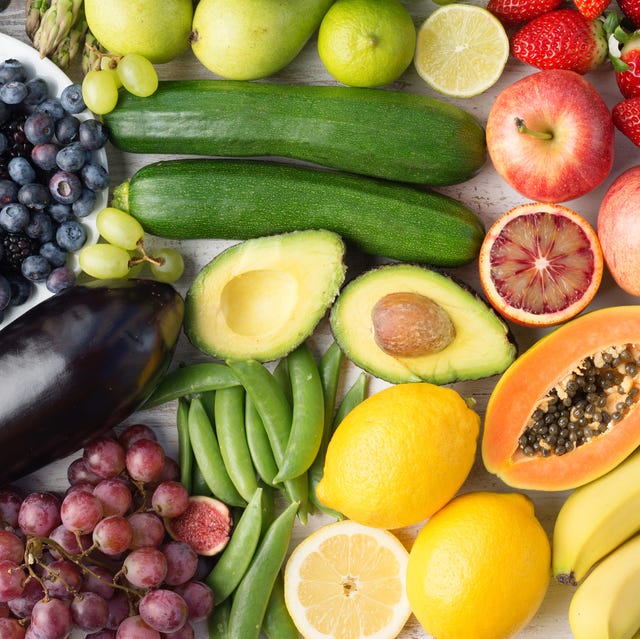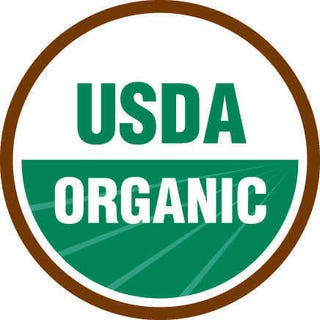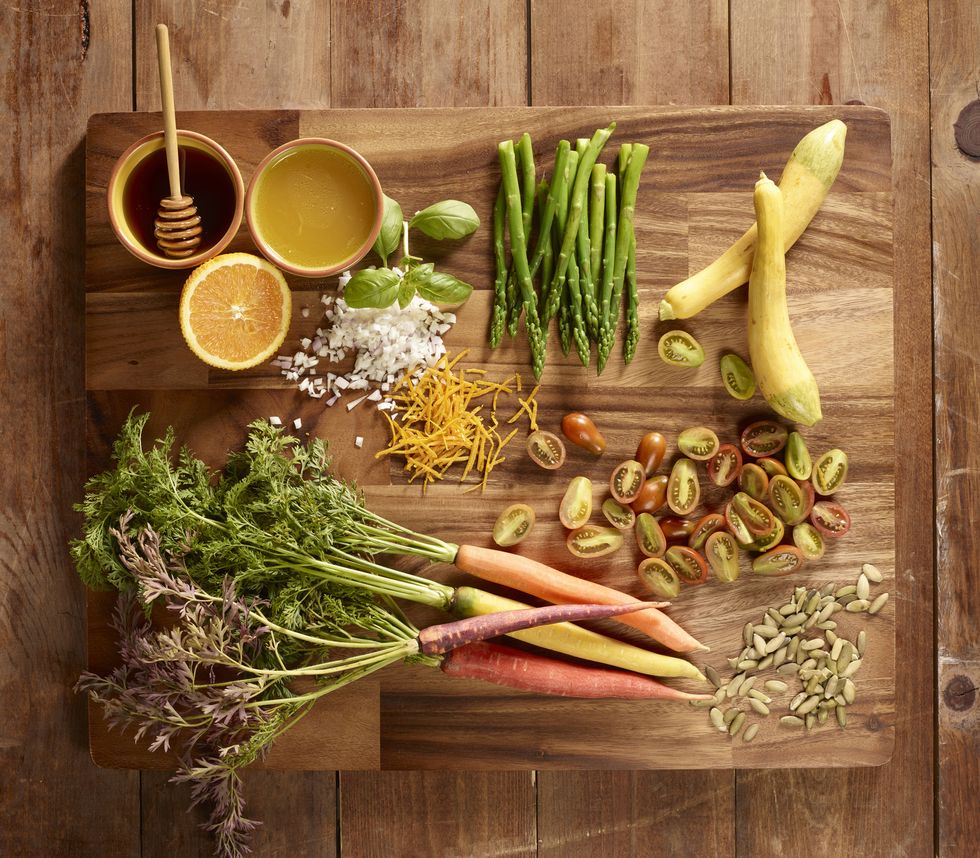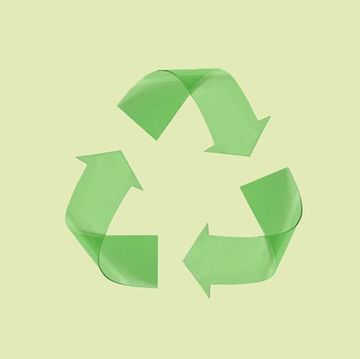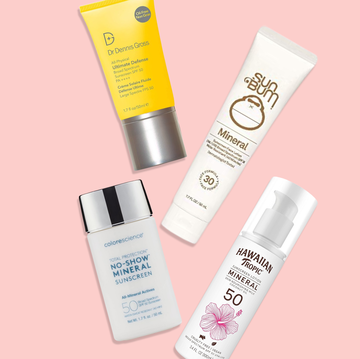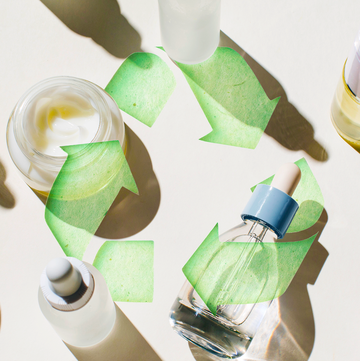You see the word "organic" thrown around everywhere these days — whether it's on food, clothing, beauty products, and more. But what does it actually mean to call something organic? The U.S. Department of Agriculture National Organic Standards Board defines the term as this:
"Organic" is a labeling term that denotes products produced under the authority of the Organic Foods Production Act. The principal guidelines for organic production are to use materials and practices that enhance the ecological balance of natural systems and that integrate the parts of the farming system into an ecological whole.
Okay ... So what does that definition actually mean for you? Here's what you really need to know about buying and eating organic food.
What exactly does organic mean?
To label a food as organic, it must meet the guidelines set by the USDA. These include:
- Not using prohibited substances (most synthetic fertilizers and pesticides) for three years prior to harvest
- Not using genetically modified organisms (GMOs)
- Raising animals in living conditions accommodating their natural behaviors (like grazing on pasture), feeding them 100% organic food, and not administering antibiotics or hormones
- Omitting artificial preservatives, colors, or flavors from multi-ingredient, processed foods with some exceptions, like baking soda in baked goods
Organic agricultural production still uses pesticides and herbicides that USDA's organic certification standards have okayed. Just because something is labeled "organic" does not mean that no pesticides or herbicides were used. It simply means that the ones applied met the USDA's production standards for the term.
The definition of organic also limits the use of "genetically modified organisms." GMO crops have been genetically altered to withstand the application of herbicides and pesticides — chemicals that protect harvests from viruses and bugs. The introduction of GMOs into the food supply sparked a debate over their health and environmental implications. Anything bearing the USDA Organic Seal is automatically non-GMO.
What does organic food mean?
Contrary to popular belief, organic food relates back to agricultural production, not a specific nutrition- or health-related guideline. For a product to carry the USDA organic label, a third party must verify at least 95% of the ingredients as organic. The phrase "made with organic ingredients" means at least 70% of the ingredients used counted as organic.
Foods can still be organic even if they're not labeled as such. Since the standard requires third-party verification, there's a cost associated with the certification process. Food companies must consistently provide back-up documentation in order to use the "USDA Organic" seal. That makes it less desirable to smaller or newer brands that use organic production practices, but don't want to incur the costs of verification.
Is organic food really better?
Despite controversial headlines about this labeling claim, the agricultural practice used to produce food does not determine how nutritious it is for you, nor does it directly impact your state of health. Case in point: Organic cane sugar is still sugar. The nutrients you'll find within the food are what, over time, predominantly affect your health — not the growing methods used to make it. Also, organic products will cost more than their non-organic counterparts, which is a critical consideration for most of us on a budget.
There's also the question of whether or not genetically modifying crops are harmful to health. But to date, there's no substantial data to imply that GMO crops available on the consumer market pose a direct risk.
Does organic mean healthy?
Short answer? No. Growing methods do not universally make foods better or worse for you nutritionally. This is especially true when you consider eating a balanced diet overall. For example, USDA Organic beef is grass-fed, which implies that you'll find slightly more omega-3 fatty acids in it compared to conventionally raised cattle. But if you're also regularly consuming seafood, then you're already getting the omega-3's you need.
When you see alarmist headline about a specific pesticide used in conventional agriculture, it's almost always talking about exposure through proximity (i.e., field work), not ingesting the foods we eat. Some population studies show a correlation between buying organic food and better health, but it's important to consider the other factors that buying organic implies, including lifestyle and socioeconomic status. Since there's no specific, isolated link between the two, we simply cannot use the term "organic" to imply "healthy" — despite the fact that it's often marketed as such.
As for GMOs and your health? The most recent and comprehensive National Academy of Sciences report states that although genetically modified crops may vary in nutritional composition, the variation is no more than what would occur naturally among non-GMO crops. The report also analyzed data from large-scale studies since GMOs entered the food supply in the '90s, but did not find any associations with chronic disease incidence and dietary patterns.
The biggest issue with GMOs from a nutritional standpoint is the products in which they’re usually found: highly processed foods and beverages. The most predominant GMO crops — corn and soybeans — can go in packaged foods loaded with added sugar (e.g., sugary beverages made with corn syrup) and saturated fat.
Is anything really organic?
In food, yes. That's because the USDA requires companies to follow certain agricultural practices before getting verified. But in other types of products, that's not necessarily the case.
The Bottom Line: While we still don't know everything about GMOs and organic growing practices, there is one thing about this debate I can say with confidence: It's more important to know exactly what foods are wholesome, nutritious, and health-promoting overall rather than focusing on a specific label claim.

A registered dietitian with a Bachelor of Arts degree from Northwestern University and a Master of Science degree in Clinical Nutrition from New York University, Jaclyn “Jackie” London handled all of Good Housekeeping’s nutrition-related content, testing, and evaluation from 2014 to 2019. Prior to joining GH, she was a clinical dietitian at Mount Sinai Hospital. Jackie has also appeared as an expert guest on The Dr. Oz Show and The Today Show. She is also author of the book Dressing on the Side (and Other Diet Myths Debunked).
